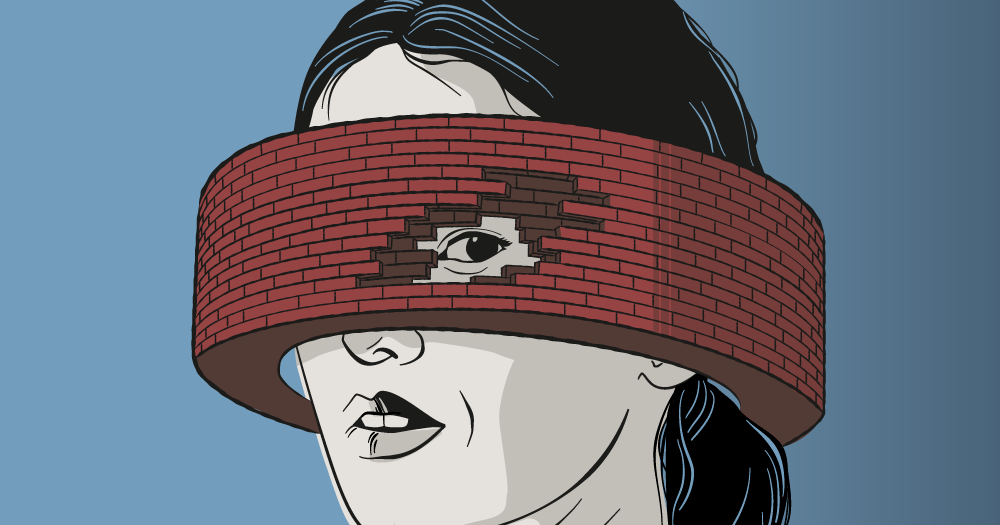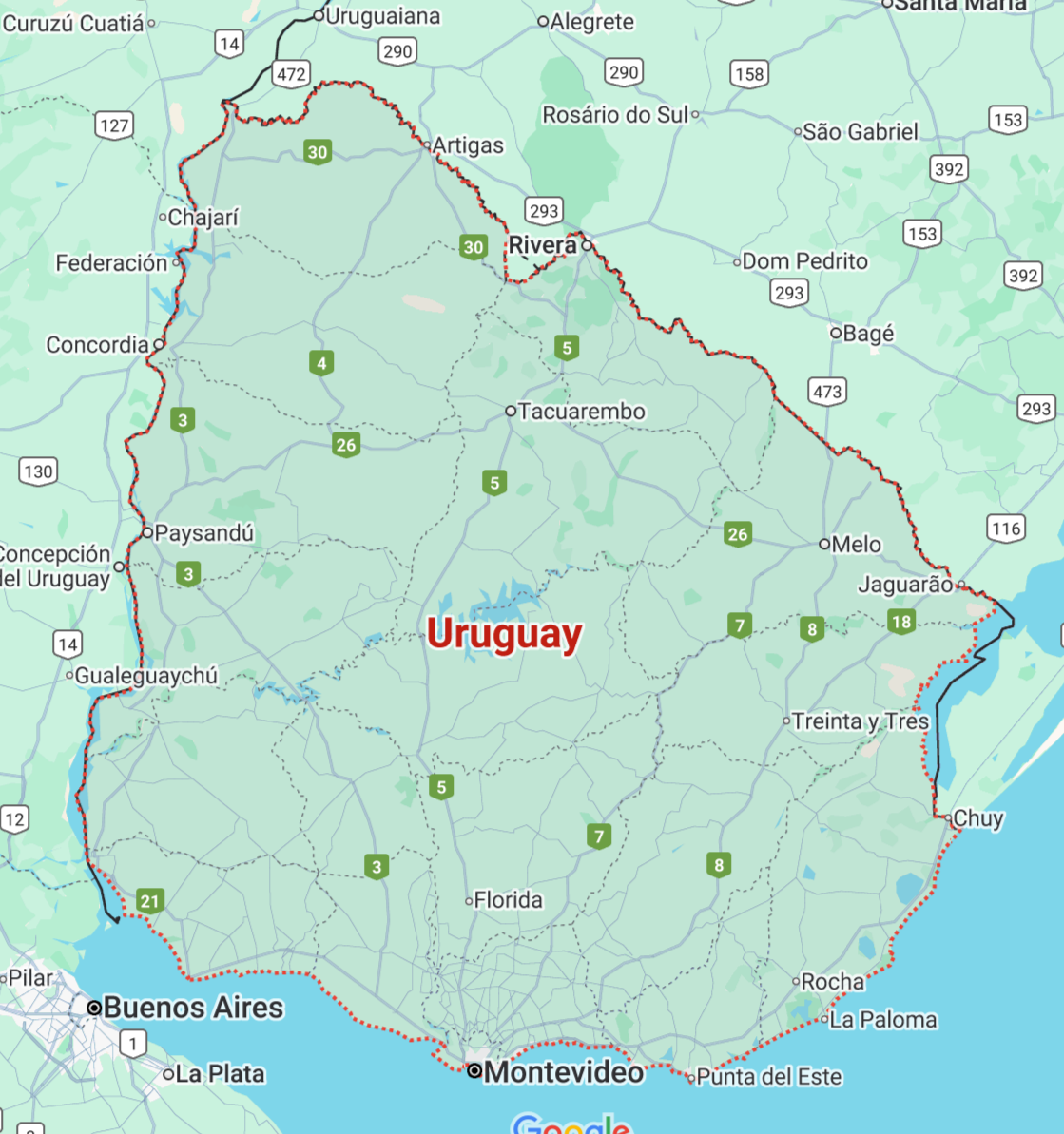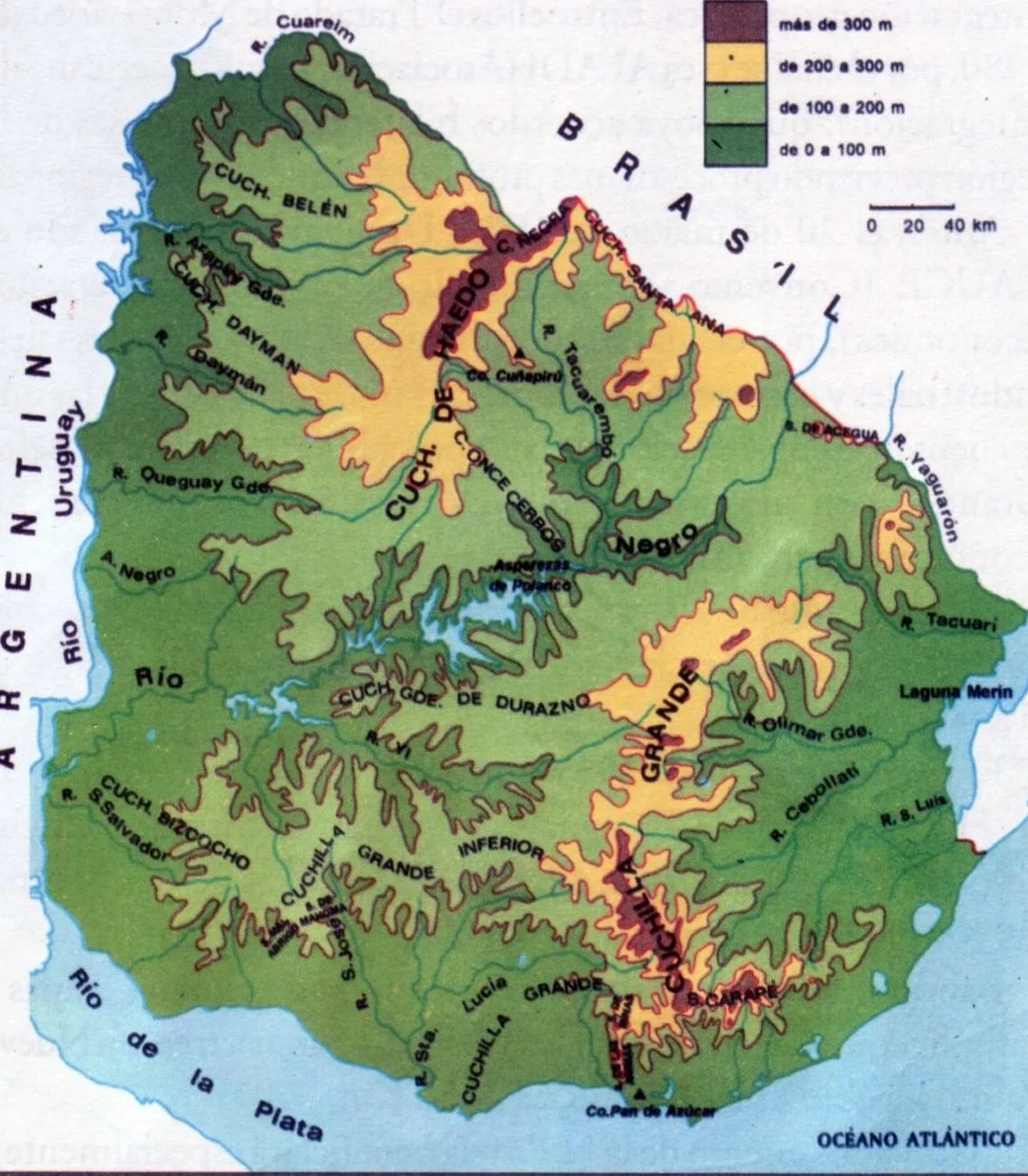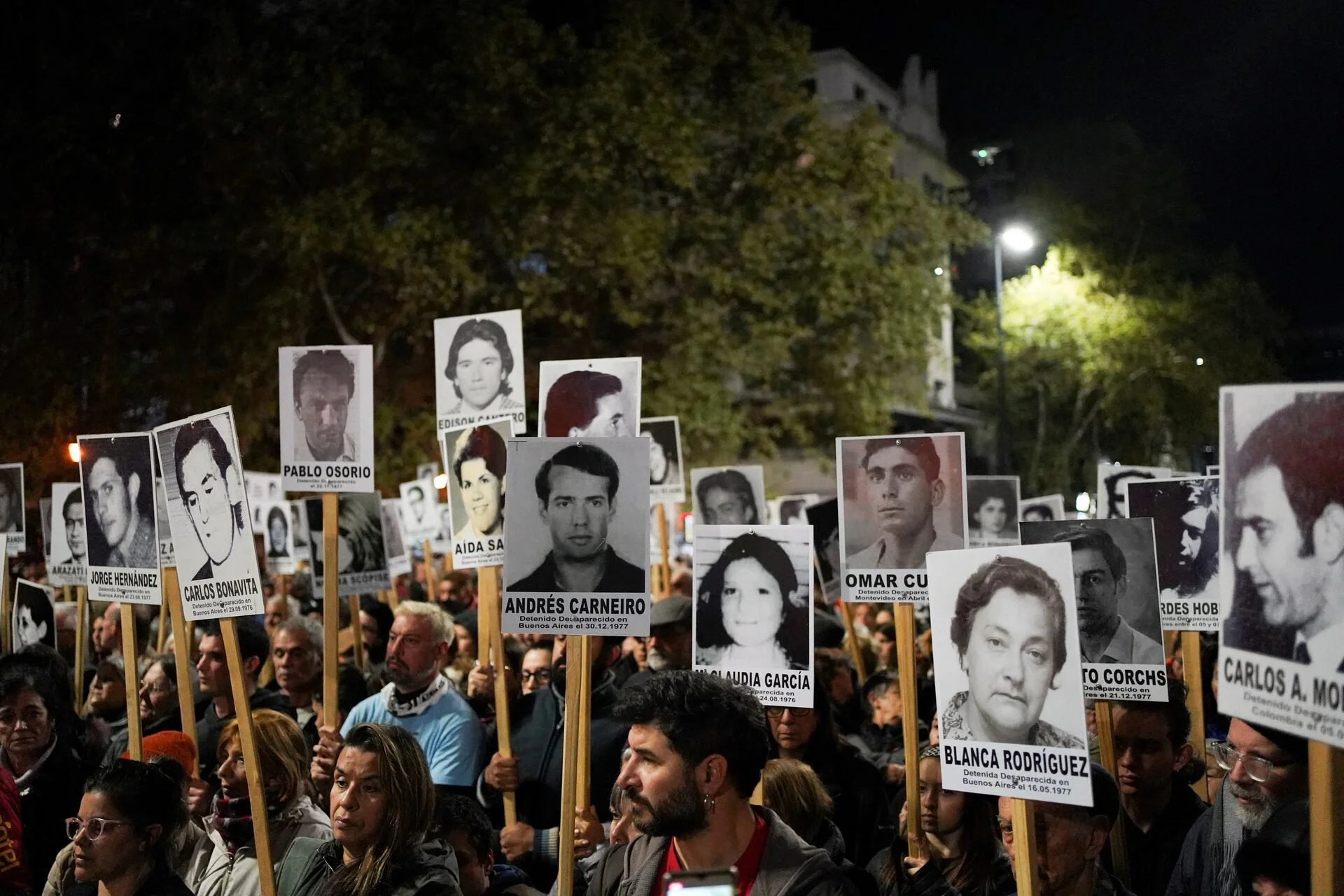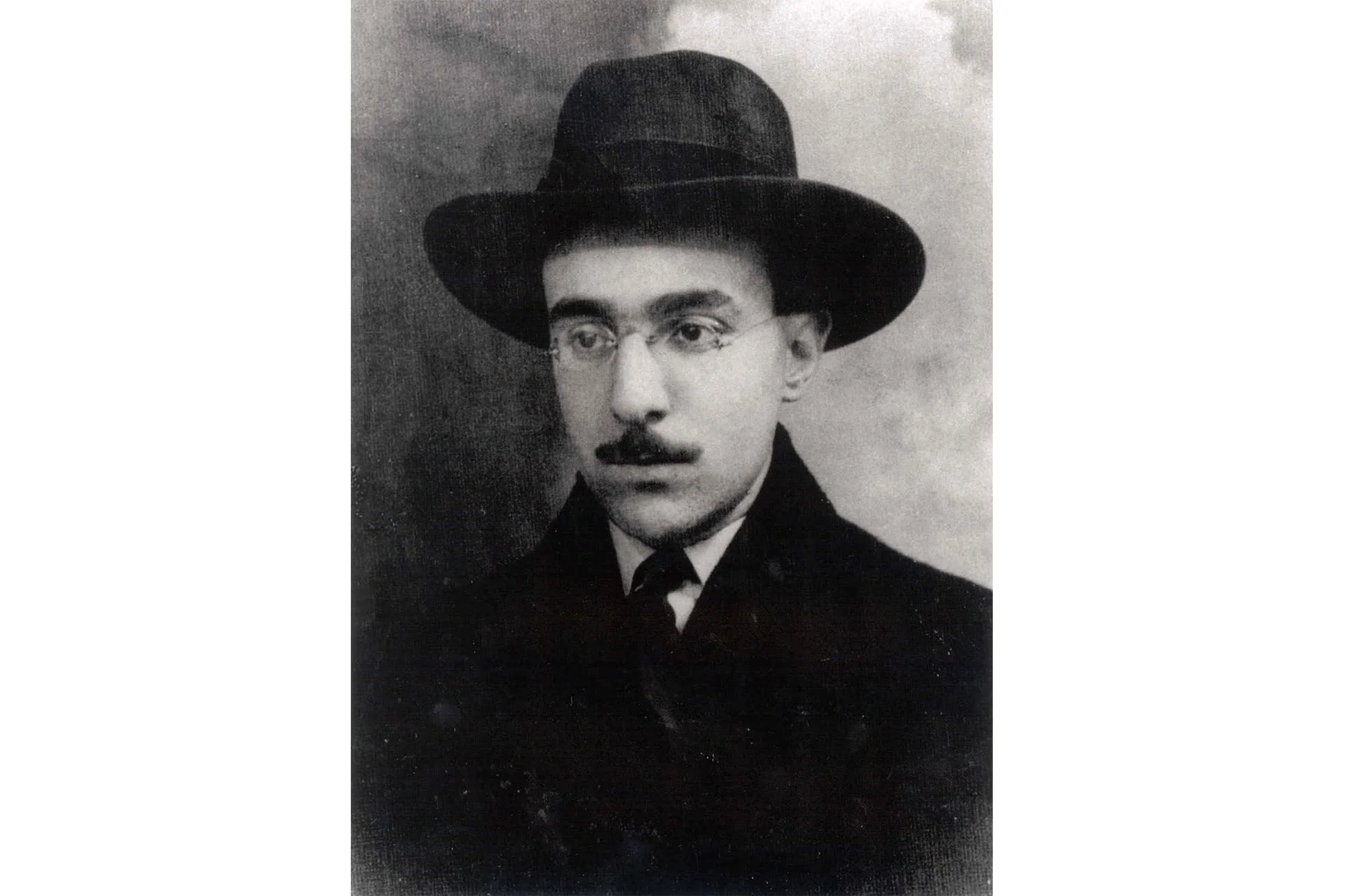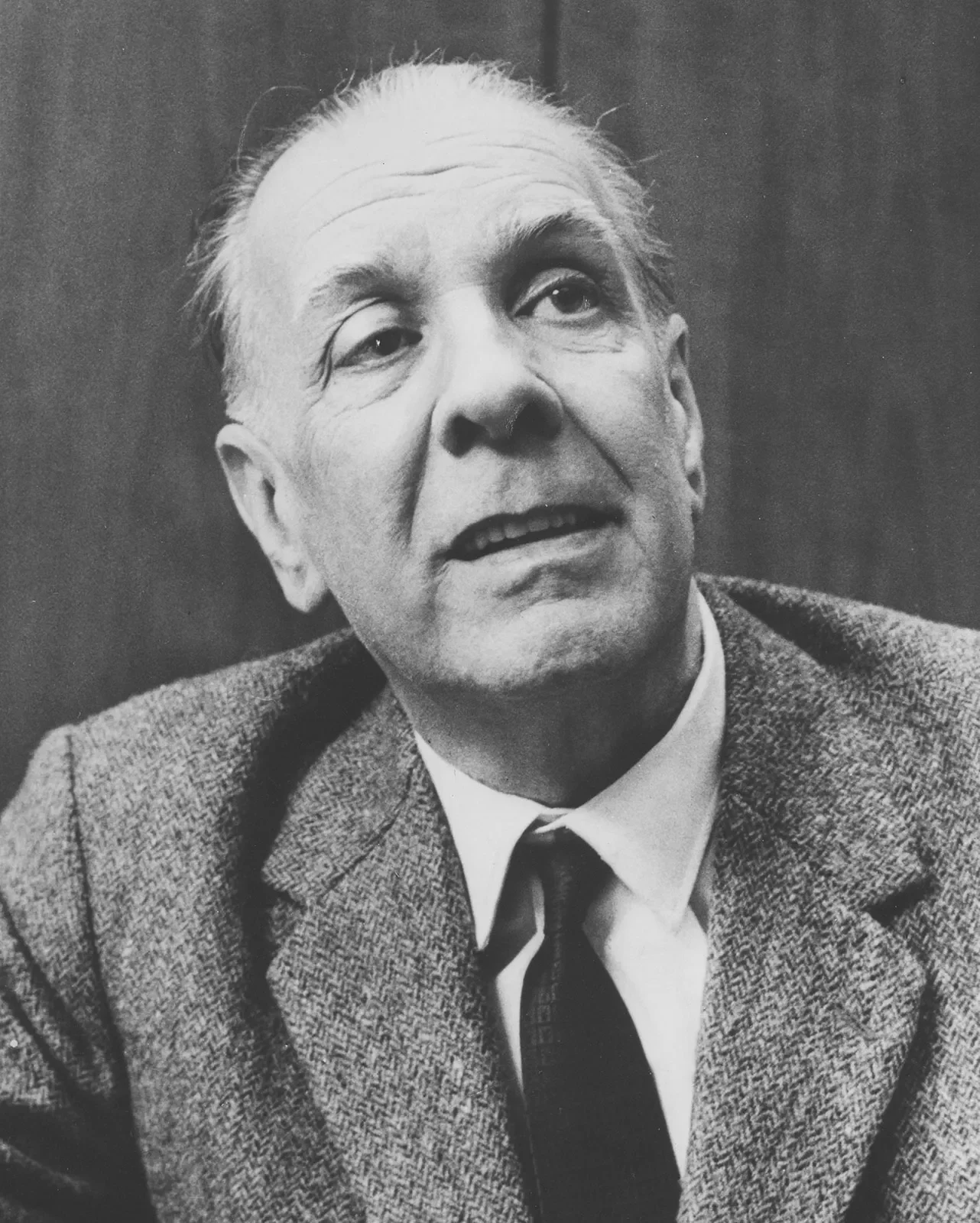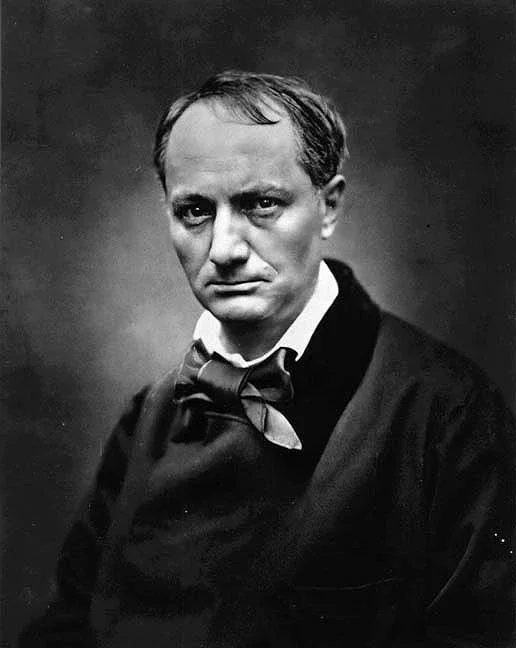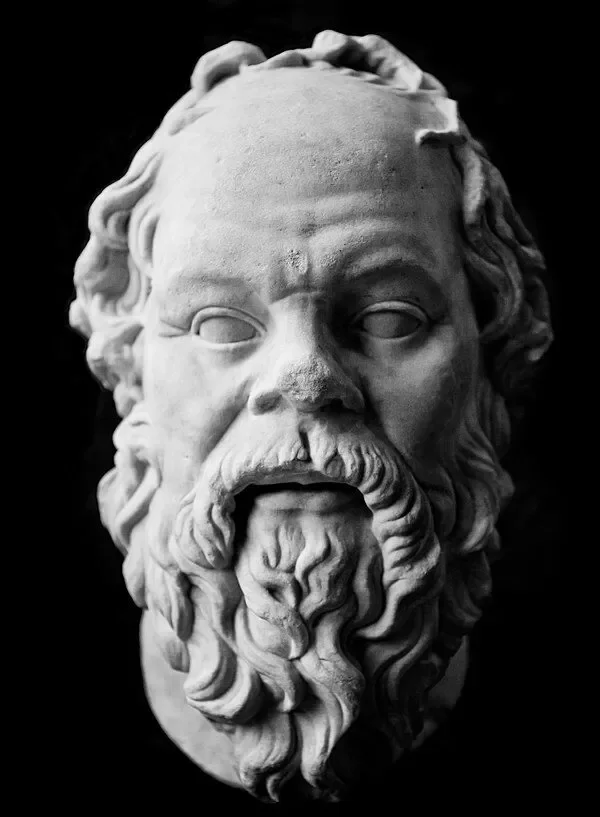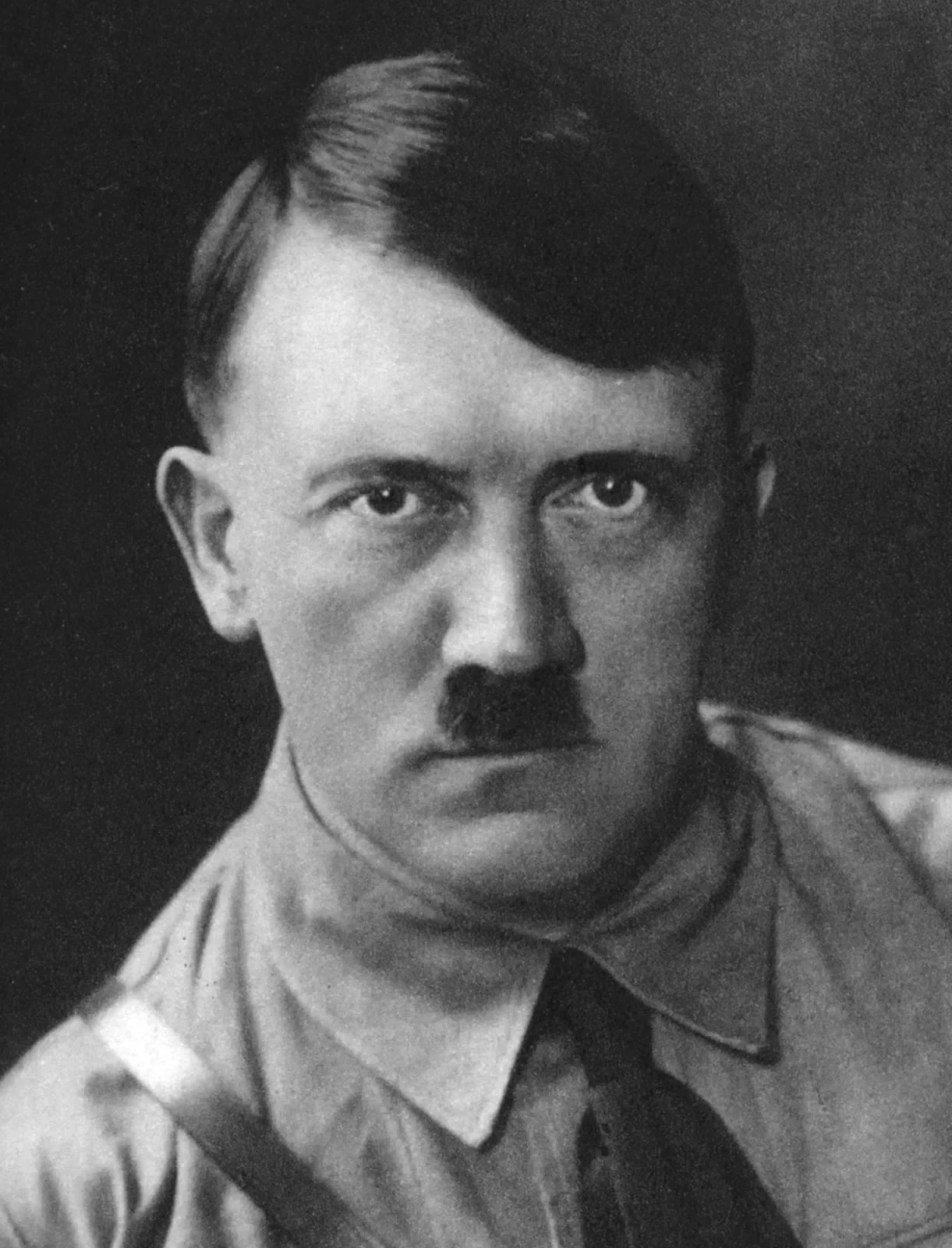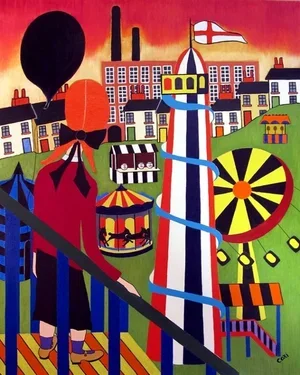The Neighborhood of the Loners
By Jimena Márquez | Directed by Kelly Howe
Mia Luparello
Production Dramaturg
Assistant Production Dramaturg
Andriy Zajac
WELCOME
Welcome to the Dramaturgy Website for Loyola University of Chicago’s Fall 2025 production of Neighborhood of the Loners by Jimena Márquez! Here, you will find many resources and information about the play and the world of the play. Please remember this is a working document and if you have any questions or would like something added to the website, please contact us!
Hello!
Contact Info:
Mia Luparello: mluparello@luc.edu
Andriy Zajac: azajac3@luc.edu
Table of Contents
ABOUT THE PLAYWRIGHT:
JIMENA MÁRQUEZ
Jimena Márquez (1978) is a professor of literature, playwright, and theater director. In 2023, the Singulier Pluriel company, under the direction of Ximena Ferrer, premiered her play Yo no conozco a nadie que mire porno (I Don't Know Anyone Who Looks at Porn) in Montreal; that same play also premiered later in its Catalan version under the direction of Melanie Catán. In 2022, Márquez won the Florencio Award for Best Actress in a Solo Performance for her play El desmontaje (The Dismantling); with that piece, she has participated in the Santiago a Mil, FIBA, Tarragona, La Paz, and Curitiba festivals. In 2019, she won the National Literature Award for her play La sospechosa puntualidad de la casualidad (The Suspicious Punctuality of Chance), which premiered at the Comedia Nacional in 2017. In 2009, she won the Florencio Award in the Emerging Artist category for the writing and direction of her debut play Cajas Chinas (Chinese Boxes). Since then, she has written more than 15 plays and has represented Uruguay in various international festivals. She has directed the ensemble of Uruguay’s National Comedy Theatre (la Comedia Nacional) four times. Three of those four productions featured works of her own, and she directed Jacobo Langsner's Esperando la carroza (Waiting for the Hearse) in 2022. She has also directed the zarzuela La verbena de la paloma (The Verbena of the Dove) for the Montevideo Symphonic Band and the shows Montevideo, cuna de la Cumparsita (Montevideo, cradle of Cumparsita), Homenaje a la Camerata Punta del Este (Tribute to the Camerata Punta del Este), and 100 años de Mario Benedetti (100 years of Mario Benedetti) for the Montevideo Philharmonic Orchestra. She has directed the children's shows Los músicos de Bremen (The Bremen Musicians) and El tesoro olvidado de la familia RTMFRJMK (The Forgotten Treasure of the RTMFRJMK Family), both of which earned her the Florencio Award for Best Show. She has also worked as a carnival lyricist since 2008, winning the award for Best Carnival Lyricist three times, in addition to winning the award for best text multiple times in various categories. In 2022, she was recognized as “Top Figure of the Carnival. She has worked as a Professional Practices professor at Uruguay’s Escuela Multidisciplinaria de Arte Dramático (Multidisciplinary School of Dramatic Art) and the Escuela Nacional de Danza del SODRE (the National School of Dance of the Official Service for Broadcasting, Performances, & Shows, an institute of the Ministry of Education and Culture) and as a professor of performing arts and literature at El Galpón Theatre School and the Montevideo Acting Institute. She currently teaches classes as part of the Tecnicatura Universitaria de Dramaturgia (Technical University Degree in Playwriting) and directs the Theatre in the Classroom program at Montevideo City Hall. She also works as a columnist for the newspaper La Diaria, as a contributor for the program Nada que perder (Nothing to Lose) on M24, and as an independent workshop facilitator.
The Neighborhood of the Loners is a place where residents live without social interactions or contact with the world around them. This sanctuary of solitude is disrupted by a sudden death in the neighborhood. The walls between neighbors come down, as the community must come together to answer the question at hand: Who poisoned Miss Pérez? Absurdist, comedic, and harrowing, this world-premiere translation explores how isolation impacts society.
CHARACTERS AND PLOT
Flores: a loner who might be a doctor and owns the house we’re in, the second one to be built in the Neighborhood of the Loners
Pérez: a loner who has only a few hours to live and who founded this neighborhood-not-at-all-intended-to-be-a-neighborhood when she built her house on top a mountain in search of a solitary life; sometimes quotes Fernando Pessoa
Peralta: a loner who’s not prepared to speak in public and doesn’t like anyone touching him
Gutiérrez: a loner who’s terrified of not being chosen when teams are picked
Domínguez: a loner who thinks this meeting makes no sense and, by the way, doesn’t like it one bit when their nap is ruined
Galíndez: a loner who owns the neighborhood store that sells its products only via—you guessed it—contactless pick-up; prefers someone else speak first
Ortiz: a loner who says she wants to hold everyone in the group equally accountable
Benítez: a loner who has never forgotten that time he threw a party that went terribly, terribly wrong
Fernández: a loner who can’t help but make suggestions that end up being taken, terrified of being haunted by family members who have died
Nuñez: a loner who doesn’t want to leave a trace, “never defended anything,” and looks ahead to the peace and relief of “the great beyond”;
Olivera: a loner who loves spiders . . . no, we mean really, really loooooves spiders
Suárez: a loner mathematician who finds it remarkably irritating to wait for people to finish their smoke breaks
Medina: a loner who asks questions, notices details, and once yearned so much for love that he accidentally creeped people out
Álvarez: a loner who passionately defends smoking, thinks nostalgia is deadly, and is not interested in your advice
Ramírez: a loner who’s already fed up with the expectation that everyone in the group has to speak, doesn’t trust the “masses,” and doesn’t want to be part of any “all”
Pereira: a loner who holds a Bachelor of Arts and it shows . . . introspective, literary, philosophical; hopes to reach nothingness
GENRE AND STYLES
Tragic Comedy and Anton Chekhov (1860-1904)
Tragicomedy is a genre that has influenced much Argentinian and Uruguayan theatre. Tragicomedy, as the name suggests, blends aspects of the Ancient Greek conventions of both tragedy and comedy. The style emerged during the Renaissance and had a major resurgence in the twentieth century with the works of Russian playwright Anton Chekhov and Irish playwright Sean O’Casey. Tragicomedy often reveals the complexity of the society it portrays, as life is not explicitly comedic or tragic–it's both. For example, Chekhov’s tragicomedy emerged to depict the complexities of life in Czarist Russia. Tragicomedy’s ability to comment on the social and political realities of society helped establish a foundation for the emergence of other theatrical genres, such as Absurdism.
Theatre of the Absurd is a theatrical style that emerged in Europe shortly after World War II. The style was experimental and comedic as it relied on shock and absurdity. Theatrical styles that influenced Theatre of the Absurd include Dadaism, Surrealism, Theatre of Cruelty, French avant-garde theatre, and clowning. Absurdity can be illogical, shocking, and inappropriate. Absurd theatre becomes comedic as the action appears so preposterous and jolting that it is laughable. Samuel Beckett (1906-1989) was an existentialist Irish playwright who worked in Paris for much of his career. His works sometimes gets associated with Theatre of the Absurd. His best known work is Waiting For Godot (1953). Beckett’s works are considered to be highly philosophical as they tend to focus on themes and questions of human existence, identity, human nature, and the state of the world.
Theatre of the Absurd
Grotesco Criollo is a theatrical style from Argentina that began in the early 1920s. The style was also popular in Uruguay. Grotesco Criollo was heavily influenced by other theatrical forms such as a style from Italy called Teatro Grottesco and a short comic sketch style from Buenos Aires called Sainete Porteño. The style is credited as being created by Argentinean playwright Armando Discépolo. Grotesco Criollo focuses on the dfficult experiences of late nineteenth century/early twentieth century immigrants in Argentina. The characters of Grotesco Criollo plays tend to reflect the types of people found in immigrant communities. These plays often explore themes of disunity, assimilation (or lack there of), social cohesion, and conflicts with authoritarian leadership. Influencial Grotesco Criollo playwrights include Armando Discépolo, Griselda Gambaro, and Roberto Cossa.
Grotesco Criollo (Creole Grotesque)
Frasier was an American sitcom series that was on air from the 1990s into the early 2000s. Starring Kelsey Grammar as the titular Dr. Frasier Crane, the series itself was a spin-off of a long-running popular sitcom Cheers (1982-1993) in which Frasier was a supporting character. The show captures much of the comedic aspects that made its originator Cheers successful. A very absurdist, chaotic, and high-stakes variety of humor (even if the situation does not warrant it) was prevalent in the show, with a subtext of social class seen throughout — Frasier and his brother Niles being more pretentious and upper class then their more down-to-earth, unpretentious father Martin.
Frasier (TV Series 1993-2004)
URUGUAY
AN OVERVIEW
Uruguay borders Brazil and Argentina and has a population of 3.3 million habitants as of 2025. Its capital city is Montevideo (1.25 habitants). About 90% of the population live in urban areas. Uruguay’s official language is Spanish, but Uruguayan Spanish dialects are heavily influenced by the Italian communities living in the nation. Additonally, in areas of Uruguay close to the border of Brazil, a mixture of Portuguese and Spanish, referred to as “portuñol,” is spoken.
Introduction
Uruguay’s ethnic makeup is 87.7% White, 4.6% Black, 2.4% Indigenous, 0.3% Other, and 5% Unspecified. Most of Uruguay’s population consists of people of European origin, because, during the late 19th and early 20th centuries, large groups of immigrants from mainly Italy and Spain began moving into the nation. 83% of the country practices some form of christianity, predominantly Roman Catholicism. Uruguay also has one of the highest Jewish populations (mainly residing in Montevideo) in South America. Very few direct descendants of Uruguay indigenous groups remain.
Demographics
Culture (in connection to the play)
Montevideo
During the first half of the 20th century, several milestone legal rights were afforded to women such as the right to vote in 1932. Today, there still seems to be a large effort towards gender equality. Uruguay has very high literacy rate for women with 98.7% of women above the age of 15 being literate. Additionally, 89.9% of Uruguay’s legal frameworks that promote gender equality and fight against gender based violence are in effect. In 2024, 25% of Uruguay’s parliament members are made up of women. Despite the Uruguay’s push towards gender equality, there are still reform that needs to be done. 24.6% of married women aged 20-24 reported getting married before the age of 18. Additonally, women, ages 15 and older report spending 19.9% of their time on domestic work and unpaid care. This is more than double the percent of time men have reported spending on the same work.
Women’s Rights
Much of Uruguay’s current national politics has been shaped by its time under the Civic-Military Dictatorship even after its fall in 1985. During its 12 year reign of terror, political dissidents, especially those belonging to left-wing movements — such as the Tupamaros, a revolutionary urban guerrilla group — were targets of a brutal campaign of extrajudicial killings, assisted by the regime’s allies through Operation Condor, as well as many thousands of forced disappearances — many of whom remain missing to this day.
After Uruguay’s transition back to democracy, escalated by the controversial amnesty granted to the military which committed the regime’s crimes, the left-wing progressive political movement in the country, including former members of the Tupamaros, became a major political force. Today Uruguay remains a relatively stable democracy, with power changing hands between the new progressive faction and formerly dominant factions, the scars of the dictatorship remain. Every year, thousands demonstrate in what is called the “March of Silence”, commemorating the regime’s victims and demanding justice. While things overall may look better now, 40 years later, the regime’s legacy still endures in the national psyche.
National Politics
March of Silence
April, 1825 - Uruguay declares Independence from Brazil, beginning of the Cisplatine War
August, 1828 - Cisplatine War ends with Uruguay’s independence being recognized by Brazil and Argentina, although independence would not be fully guaranteed for decades.
November, 1864 - A proxy conflict in Uruguay between Brazil and Argentina escalates into a regional war with Paraguay, beginning the War of the Triple Alliance
March, 1870 - The War of the Triple Alliance ends, finally guaranteeing Uruguayan independence from its larger neighbors
March, 1876 to March, 1890 - A period of both military rule and modernizing reforms.
November, 1930 - The economic impact of the Great Depression hit Uruguay hard, leading to the election of President Gabriel Terra in the midst of the crisis
March, 1933 to June, 1938 - A period of dictatorship under President Gabriel Terra, defined by a semi-fascist alignment in foreign policy despite greater expansions of constitutional rights domestically.
February, 1967 - The current constitution of Uruguay is adopted
June, 1973 - Elected President Juan María Bordaberry is pressured into performing a coup d’etat with the military, dissolving the legislature and implementing dictatorial rule under the “Civic-Military Dictatorship”. He would later be removed from power by the military after trying to propose a new constitution
March, 1985 - The 12 year dictatorship under the military comes to an end with a transition to democracy, leaving behind a legacy of repression.
Present day - Uruguay has remained, since the end of the dictatorship a progressive democratic nation, however the scars and echoes of the repression of that era linger, as many victims of the regime’s forced disappearances of political opponents still remain missing today.
TIMELINE
Philosophical and Literary References in Neighborhood of the Loners
Pessoa was a Portuguese writer, poet, literary critic, and essayist, and is now considered to be one of the most significant literary figures of the twentieth century. He born, worked, and died in Lisbon, Portugal. Pessoa wrote several journals under different heteronyms such as Alberto Caeiro, Ricardo Reis, and Álvaro de Campos. When Pessoa published works under his own name, he considered those too as also being written by a kind of literary persona. Pessoa’s heteronyms had extremely detailed biographies and distinct writing styles and opinions. Pessoa was interested in the mystic and experimented with automatic writing.
Fernando Pessoa (1888-1935)
biography
Jorge Luis Borges (1899-1986)
biography
Charles Baudelaire (1821-1867)
biography
Socrates (469-399 BCE)
The fascist dictator of Nazi Germany (1933-1945) whose totalitarianism, beginning WWII, and incomprehensible atrocities against Jews and other ethnic groups in the Holocaust made him ubiquitous in the history of the 20th century.
Adolf Hitler (1889-1945)
What is Nostalgia?
Nostalgia
noun
1: a wistful or excessively sentimental yearning for return to or of some past period or irrecoverable condition
also : something that evokes nostalgia
2: the state of being homesick : homesickness
nos·tal·gia
Mafia-The Game
Mafia, the game, was created in Moscow, Russia by Dmitry Davidoff in 1986. He created the game as a research project for the Moscow State University’s Psychology Department. The game gained popularity once it spread to other college campuses in Europe and eventually, the United States. The game reached its peak popularity in the 1990s and still played by many today.
Origins:
Mafia’s Popularity in Uruguay:
Narrator: The narrator acts as a moderator of the game as they prompt players to perform actions and accuse other players of being the Mafia. While they do not officially participate in the game, they are a crucial role as they set the pace and prompt the action.
Mafia: The Mafia’s objective is to “kill” civilians until they are the majority of the players left. If there is more than one Mafia player, they will learn of each others identities during the first night phase. The Mafia will then work together and vote for which player they want to “kill off” during each night phase. During day phases, the Mafia must act as they are civilians to avoid suspicion and continue their objective.
Civilians: The civilian’s objective is to discover who the Mafia player(s) and successfully vote them out of the game. During day phases, the civilians, along with all the other players, will discuss and accuse those they find suspicious.
Detective: The detective works alongside the civilians to vote out the Mafia players, but they have a special ability. During night phases, the detective can ask the narrator if a player they believe is a part of the Mafia. If they survive the night, they can then share their discoveries with players during the next day phase. If the detective is “killed,” they are not replaced.
Doctor: The doctor, similarly to the detective, works alongside the civilians but has a special ability. During night phases, the doctor will be able to ask the narrator to save a player from being “killed” by the Mafia. If that player was voted to be “killed” by the Mafia and then saved by the doctor in the same night phase, they are no longer going to be announced as “dead” by the narrator during the next day phase. The doctor cannot save the same person two rounds in a row. If the doctor is “killed,” they are not replaced.
Character Roles:
Setup: Using a deck of cards, the narrator decides which suit will represent each of the character roles. Typical, there should be one mafia players for every three civilian players. The narrator then distributes the cards and the players learn of their role.
1st Night Phase: Once roles have been assigned, the first night phase begins. The narrator announces that everyone should “fall asleep” and then all players close their eyes. The narrator then asks the Mafia to wake up and the Mafia player(s) should open there eyes. This is where, if there are multiple mafia players, the Mafia will discover who is on their team. Then, the Mafia will silently point to who they want to “kill.” Once they have agreed on a victim, the Mafia can fall asleep. Next, the narrator will tell the detective to wake up. Once they have opened their eyes, the detective will point at player to ask the narrator if that player is a Mafia member. The narrator then responds with a non-verbal yes or no cue to inform the detective. Once they receive a response from the narrator, the detective will close their eyes and go back to sleep. Lastly, the narrator will ask the doctor to wake up and open their eyes. The doctor then points to whatever player they would like to save and then goes back to sleep/closes their eyes. Once the doctor has gone back to sleep, the first night phase ends and the narrator will ask all players to wake up and open their eyes so the 1st Day Phase can begin.
1st Day Phase: The narrator will announce who the was “killed by the mafia during the Night Phase and whether or not they had been saved. Once the events of the previous night have been revealed to the players, the group will begin to discuss who they believe is guilty for 5-10 minutes. Eventually, the players will vote on who they believe is in the Mafia and that player will be eliminated. There identity will be revealed to the group by the narrator.
Continuing the game: If there are still Mafia remaining or an innocent player was removed, the game will continue by repeating the steps of the Day and Night phases. If the doctor or detective was “killed” they will not be replaced and the game continues without them. Once removed from the game, players will be able to spectate the continuing rounds. The game ends when either all the Mafia have been voted out or the majority of the players remaining are members of the mafia.
Game Rules:
Glossary
-
a green or sometimes colorless distilled liquor with high alcoholic content that is flavored with wormwood, anise, and other aromatic herbs (such as fennel)
-
a usually tall cupboard or wardrobe
-
Automatic writing is writing produced without conscious intention as if of telepathic or spiritualistic origin. It was popularized by Surrealist writers and artists who wished to create works that revealed aspects of the subconscious.
-
lacking originality, freshness, or novelty
-
A coffee beverage common throughout Spain and Latin America consisting of strong coffee (usually espresso) mixed with scalded milk in approximately equal amounts.
-
A Democracy is a form of government in which the people vote directly or elect representatives to vote against or in favor of decisions, policies, laws, etc.
-
Item description
-
A political ideology and form of leadership that places the nation and oftentimes race above the individual in society, usually associated with a centralized authoritarian government and a dictatorial leader. Fascism is often characterized by extremely regimented social and economic sectors combined with forcible (and often violent) suppression of opposition
-
not perceptible by a sense or by the mind; extremely slight, gradual, or subtle
-
1. to bend the knee or to touch the knee to the floor or ground especially in worship
2. to be humbly obedient or respectful
-
a person who engages in irregular warfare especially as a member of an independent unit carrying out harassment and sabotage
-
alternative personae; rather than alter egos, alternative identities that serve as counterparts to or foils for an author’s own ideas; presented as distinct authors, each of whom differed from the others in terms of poetic style, aesthetic, philosophy, personality, and even gender
-
1. abnormal drowsiness
2. the quality or state of being lazy, sluggish, or indifferent
-
a hatred or distrust of humankind
-
Operation condor was a clandestine campaign and network of international political repression involving the military dictatorships of various South American countries, including Uruguay.
-
serenely free of interruption or disturbance
-
being apparently rather than actually as stated; artificial and false
-
Item description
-
1. the derivation of sexual gratification from the infliction of physical pain or humiliation on another person compare masochism, sadoma-sochism; delight in cruelty
2. extreme cruelty
-
Totalitarianism is a system of government that is centralized and dictatorial and requires complete subservience to the state.
-
1. an aggregate amount : sum, whole
2. the quality or state of being total
-
Tupamaros was a Uruguayan left-wing urban guerrilla organization existing from 1963-1985, which was the target of heavy repression under the country’s Civic-Military Dictatorship, eventually reorganized into the broader left-wing political movement after the dictatorship fell.ext goes here

